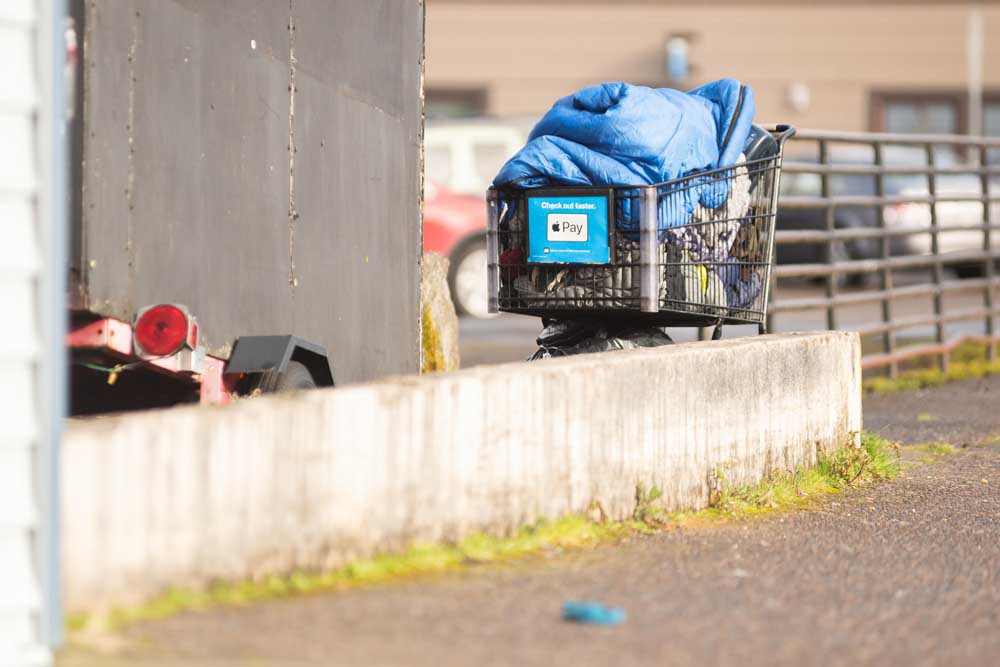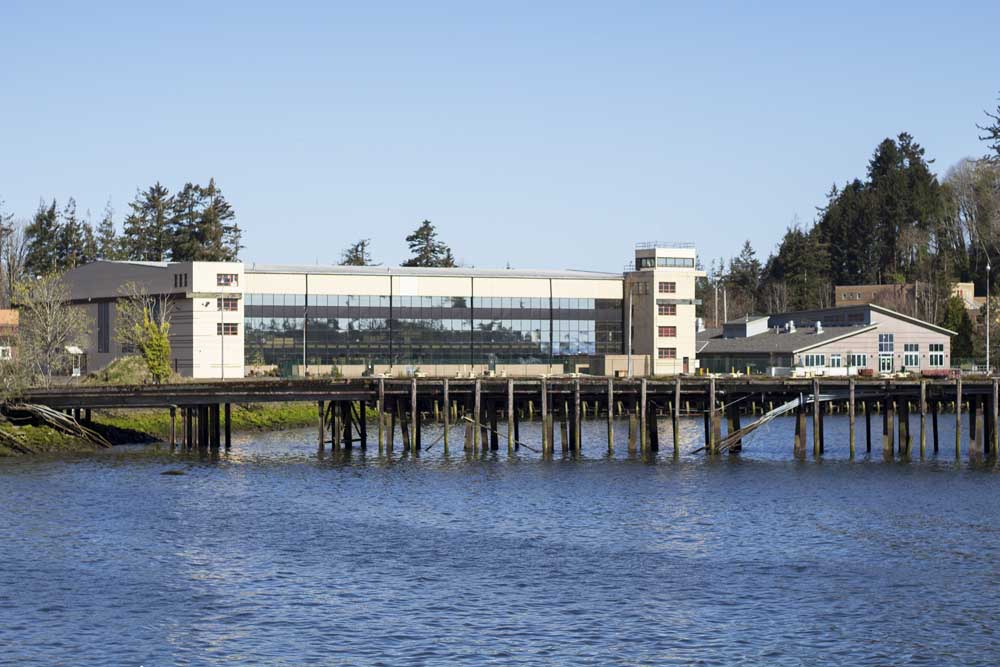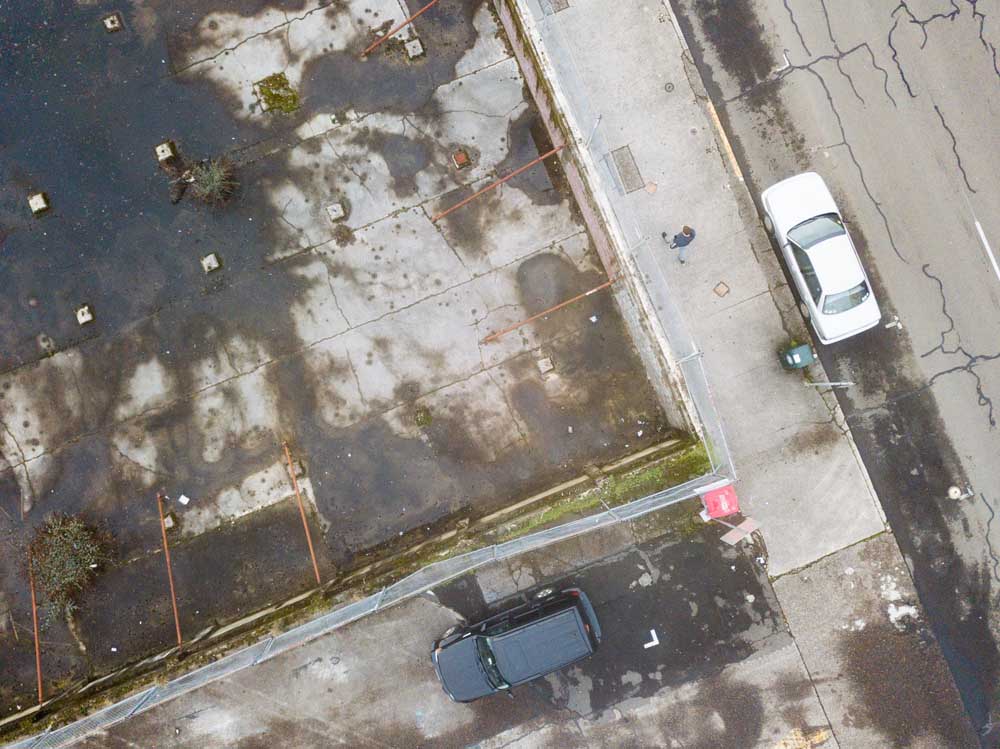Astoria looks at tools to respond to bad behavior downtown
Published 10:00 am Friday, March 18, 2022

- Gov. Tina Kotek has declared a state of emergency on homelessness.
Astoria is moving forward on several options to address bad behavior and quality of life concerns that stem from an increasingly visible homeless population.
The City Council in February prioritized tools to curb bad behavior. In the coming weeks, city councilors will consider adopting ordinances to handle RVs and stolen and abandoned shopping carts.
The council also plans to update the city’s camping ordinance and adopt an expulsion zone ordinance, which would temporarily expel repeat offenders from specific places.
At a City Council work session on Wednesday, Police Chief Geoff Spalding outlined the ordinances to handle RVs and illegal camping.
The police chief said his officers hear complaints daily about bad behavior tied to a small number of homeless people. He said the ordinances under consideration are interconnected and will give officers tools to address the problems more effectively.
“This has occupied a lot of our time,” Spalding said. “We do clearly sense the same frustration that you are all feeling from the community, and frustrations that are voiced by our residents and our visitors in the community about what they call the deteriorating condition of our community.”
The city already has an ordinance that prohibits abandoned vehicles and storing vehicles on streets, but plans to expand the restriction.
Spalding said other cities have expanded ordinances to include prohibiting vehicles that are unregistered, derelict or hazardous. A new ordinance would spell out ways to handle different situations, the police chief said.
The ordinance could also address people who live in RVs that periodically move the vehicles several feet or a block away to avoid being towed. Spalding said the ordinance could require people to move their RVs to a lawful area. After three violations, the vehicle could be towed.
Mayor Bruce Jones said that while the number of problem vehicles is relatively small, they have caused significant concern.
“I think it’s the combination of the vehicles and the disrespect of the vehicle owners by leaving trash strewn about, and particularly in highly visible places like at the Sixth Street, river trail intersection … ,” the mayor said. “So that the first thing that visitors to our community see on the river trail is garbage strewn about an abandoned vehicle, with people there that are perfectly capable of cleaning up and just choose not to.
“I would like the ordinance to be as strict as it can be within whatever our legal limits are.”
City Councilor Joan Herman said, “I know we will be criticized most likely for being uncompassionate. But I personally believe people should be held to a basic standard of decency, which as the mayor just pointed out, includes picking up trash and not threatening others, which I’ve heard has happened.”
City Councilor Roger Rocka expressed support for the ordinance, along with the other options the city is exploring.
“It’s such a complicated problem,” he said. “It’s good to be able to distinguish between people, like the mayor described, who make a mess, and then basically flip you off when you ask them to clean it up, and other people who are really just hanging on by a thread.
“And so we’re looking for solutions that gives some leverage against the former without further punishing the latter.”
Creating a camping ordinance is a process the city expects will involve more time and public input.
The city has limited options for enforcing camping on public property after recent federal court rulings and state legislation.
Police can only enforce illegal camping in public if there are adequate shelter spaces available for people to sleep. But if there is not adequate shelter space, cities can either choose to not enforce illegal camping or choose to adopt an ordinance that details the time, place and manner someone can sleep on public property.
Since there are few shelters on the North Coast, Spalding said the city needs to decide how to proceed with camping.
The police chief said some cities have identified areas where people can sleep between dusk and dawn. Some have allowed people to sleep on sidewalks if they leave at least 5 feet of space, while other parts of the city are off-limits. Some cities allow tents, he said, and some only allow sleeping bags.
One option is to identify a large location where the city can set up small shelters or allow tents, Spalding said. The city may also be required to include restroom and shower facilities and even security.
Another option is to identify certain places within the city people can sleep, and certain places that are off-limits.
Spalding said city staff created a list of potential locations where people can sleep, along with pros and cons for each site. Some of the common concerns involve sites being too far away from services or too close to neighborhoods and schools.
Among the places identified include the Pacific Power property near Youngs Bay, the parking lot of the Astoria Aquatic Center and the parking lot at Shively Park.
Jones said it will be important to schedule more time to present the topic to the community.
“We don’t have a choice between a good solution that everyone loves and the current state,” Jones said. “The community is going to need to provide input on what it considers the lesser of two evils — to have a couple of large, concentrated campsites in town or to have continued dispersed camping on various public areas that could change from day to day, depending on where people want to put their tent up.”





